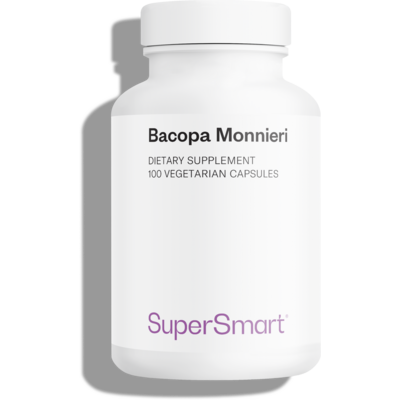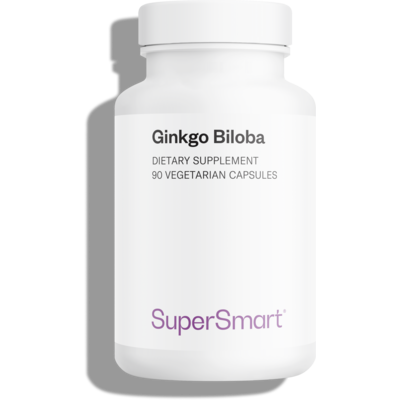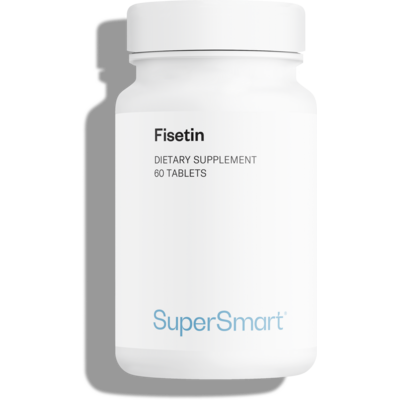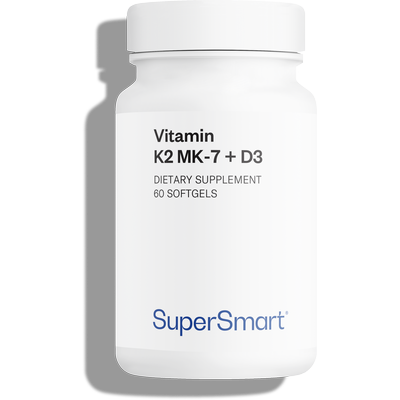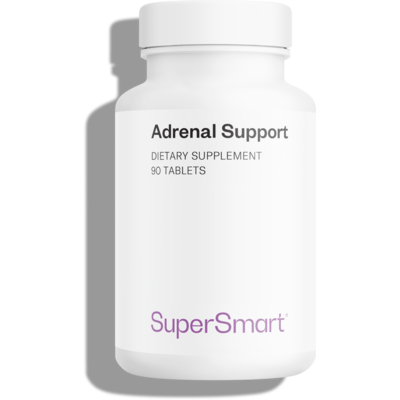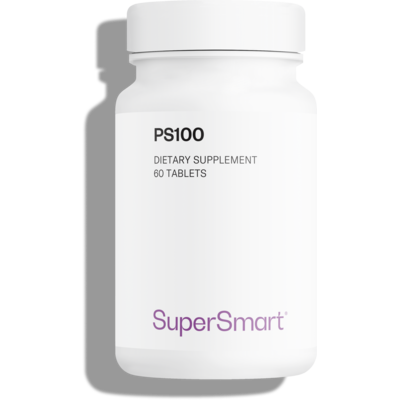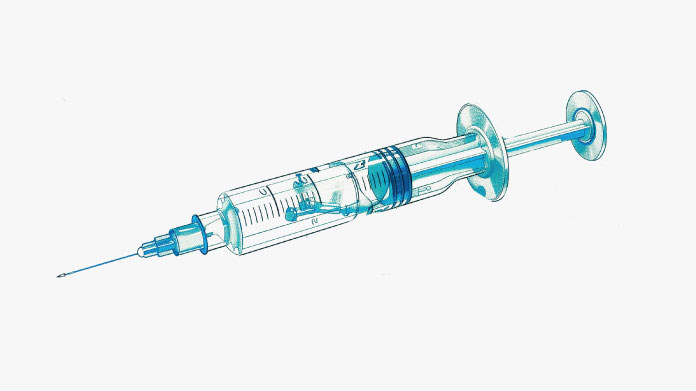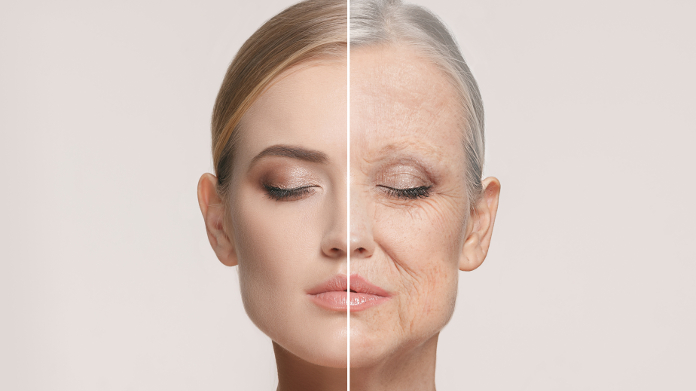Why some people age better than others (and how to be one of them)?
Some people stay healthy and look young despite advancing age. What are their secrets for defying the test of time?

Why do some people ‘age well’ while others don't?
The undeniable role of genetics in health and longevity
The way you age is influenced by a number of factors.
Firstly, your genetic make-up determines various characteristics, such as cellular health, organ resilience, the development of certain diseases, etc. (1).
Here, it's the genes inherited from your ancestors that are at work, and there's not much you can do about it.
The crucial importance of lifestyle
The second factor that has an impact on ageing, and over which you have some control, is your lifestyle (2).
In particular, your diet, physical activity, sleep and state of mind (especially the way you deal with stress) have an undeniable impact on your cellular ageing and on whether or not you develop certain disorders (3).
Of course, there's also access to healthcare, exposure to pollution and UV rays, and so on.
The different disorders that can occur with age
Taken together, these factors explain why some people appear younger for longer, while others suffer more rapidly from various problems as they age, including:
- greater fatigue on exertion, loss of strength;
- very pronounced wrinkles, brown spots on the skin;
- joint pain (osteoarthritis, arthritis, rheumatism, etc.);
- cognitive impairment (loss of memory, difficulty concentrating, etc.);
- cardiovascular problems (high blood pressure, risk of stroke, heart attack, etc.);
- metabolic disorders (diabetes, hyper- or hypothyroidism, hypercholesterolaemia, etc.);
- slowed intestinal transit;
- chronic and inflammatory diseases, etc.
The key factors for healthy, well-balanced ageing
A diet that keeps you healthy
As mentioned above, diet is one of the pillars of good health at any age (4).
Broadly speaking, it's essential to eat a diet rich in fruit and vegetables, which are sources of dietary fibre and antioxidants.
Proteins, whether vegetable or animal, help to maintain muscle mass.
Finally, it's a good idea to avoid saturated fats in favour of ‘good fats’.
And, of course, good hydration is also vital for the proper functioning of all the body's organs.
The importance of physical activity for the body and the brain
Maintaining a sufficient level of physical activity is essential at any age.
Gentle exercise (walking, swimming, yoga, etc.) helps maintain good mobility while preserving muscle mass (5).
Regular exercise is also good for the brain, helping to stimulate cognitive function (6).
Better sleep: a key to longevity
Finding and maintaining a balanced night's sleep is known to contribute to cell repair and protect the brain against premature ageing (7).
In fact, during sleep, the body activates essential processes such as the regeneration of body tissues and the elimination of toxins accumulated in the brain.
Chronic stress: a driver of premature ageing
During stress, the body secretes a hormone called cortisol.
At normal levels, it helps to manage this stress, but when present in excess and on a chronic basis, cortisol has negative effects on ageing.
Not only does it accelerate skin ageing and muscle loss, but it also encourages the development of chronic pathologies such as neurodegenerative diseases and metabolic disorders (8).
That's why it's important to find ways to reduce your stress on a daily basis — through meditation, yoga, gardening, spending time with loved ones, walking in the woods, and so on.
Substances that support healthy ageing
Targeted anti-ageing action on cells
Eliminating senescent cells
As we age, cells that are no longer functional but remain in the body can interfere with the functioning of healthy cells.
Research suggests that certain compounds, including a polyphenol called fisetin, have the ability to destroy these senescent cells (see Fisetin supplement) (10).
Spermidine & cell regeneration
Another molecule, spermidine, a polyamine naturally present in the body, plays an essential role in autophagy, a natural mechanism for cell recycling and regeneration (11).
Since its physiological production decreases with age, it may be worth taking it orally (with Spermidine).
Synergistic formulas for cell longevity
For a more complete action, some food supplements combine these three substances to take advantage of their synergistic effects (such as Liposomal Anti-Ageing Formula, the only liposomal formula in the world to combine NMN, spermidine and fisetin).
Good fats for the heart and brain
Omega-3 EPA and DHA are 'good fats' that contribute to normal heart function, normal blood pressure and normal triglyceride levels.
DHA also helps maintain normal brain function and vision.
They are therefore both essential micronutrients for maintaining long-term circulatory and cerebral health.
EPA and DHA are found in certain oily fish (salmon, sardines, mackerel, herring, etc.) and in higher quantities in omega-3 dietary supplements (such as Super Omega 3, renowned for its stability and purity) (12).
Maintaining bone health as we age
Supplied by sunlight, trout or calf's liver, vitamin D3 is essential for calcium absorption and therefore bone health.
In particular, the combination of calcium and vitamin D helps to reduce bone loss in post-menopausal women.
Vitamin K, found in green leafy vegetables, parsley and natto, helps maintain normal bones.
Ideally, opt for the only form of vitamin K that can increase its concentration in the bloodstream by up to 8 times: menaquinone-7.
It is therefore particularly interesting to combine vitamin D3 and menaquinone-7 to promote bone strength (this is what the synergistic duo Vitamin K2 MK7 + D3 offers you) (13).
Other plant-based formulas can also complement the action of these vitamins on bone tissue (such as Bone Health, which contains Osteosine™, an exclusive blend of plant extracts studied on fracture resistance).
Collagen to nourish joints
Type 2 collagen is an important component of cartilage (14).
Over time, this cartilage tends to wear down, leading to joint problems that can reduce mobility and, consequently, the quality of life for the elderly.
Many people, therefore, choose to supplement with type 2 collagen (cf. the UC II® supplement formula, which combines type 2 collagen with fermented ginger extract, astaxanthin, MSM, etc.).
Preserving cognitive functions threatened by ageing
Reasons for cognitive decline with age
It's a well-known fact that ageing puts a strain on cognitive functions, such as reaction time and the ability to remember.
This phenomenon is due to the gradual reduction in neuroplasticity, reduced cerebral blood flow, accumulated oxidative stress, neuronal inflammation and the decline in essential neurotransmitters involved in memory and processing speed.
Ginkgo biloba and memory
Fortunately, certain plants are recognised for their effects on cognitive performance.
Ginkgo biloba, in particular, helps to maintain a good memory by promoting cerebral blood circulation, protecting nerve cells against oxidative stress and improving the transmission of neuronal signals (find an extract of this plant with Ginkgo Biloba) (15).
How does Bacopa monnieri boost cognition?
Another plant, Bacopa monnieri, has been used for thousands of years in Ayurvedic medicine.
According to current studies (16), bacopa helps maintain good cognitive function by promoting neurogenesis, increasing synaptic plasticity and regulating levels of neurotransmitters such as acetylcholine and serotonin (see the Bacopa Monnieri product).
A form of carnitine that's excellent for the brain
Apart from plants, there is acetyl-L-carnitine (ALC), an acetylated form of L-carnitine, a compound naturally produced by the body from the amino acids lysine and methionine.
ALC is involved in the production of cellular energy by facilitating the transport of fatty acids to the mitochondria.
It also protects the brain against oxidative stress and ageing by reducing free radicals, supporting neurotransmission and promoting neuronal plasticity (17).
ALC can be taken orally (see the supplement Acetyl L-Carnitine Arginate or the more complete, synergistic Neuro-Nutrition Formula).
Phosphatidylserine: cognitive speed & neuroprotection
Phosphatidylserine is a molecule naturally present in the cell membranes of the brain, where it plays an essential role in membrane fluidity, neuronal signalling and cell communication.
The presence of phosphatidylserine in brain tissue helps maintain memory, concentration and cognitive speed, while offering a form of neuroprotection (18) (find it with PS 100).
Combating glycation, which accelerates tissue deterioration
Relaxing plants for less stress and better sleep
Finally, some plants promote relaxation and restful sleep, slowing down the ageing process by helping the body to regenerate rather than deteriorate.
These include adaptogenic plants (tulsi, eleutherococcus, rhodiola, etc.), which can be found in anti-stress supplements (such as Adrenal Support) (21).
SUPERSMART ADVICE
References
- (1) Moskalev AA, Aliper AM, Smit-McBride Z, Buzdin A, Zhavoronkov A. Genetics and epigenetics of aging and longevity. Cell Cycle. 2014;13(7):1063-77. doi: 10.4161/cc.28433. Epub 2014 Mar 6. PMID: 24603410; PMCID: PMC4013158.
- (2) Friedman SM. Lifestyle (Medicine) and Healthy Aging. Clin Geriatr Med. 2020 Nov;36(4):645-653. doi: 10.1016/j.cger.2020.06.007. Epub 2020 Aug 19. PMID: 33010900.
- (3) Yegorov YE, Poznyak AV, Nikiforov NG, Sobenin IA, Orekhov AN. The Link between Chronic Stress and Accelerated Aging. Biomedicines. 2020 Jul 7;8(7):198. doi: 10.3390/biomedicines8070198. PMID: 32645916; PMCID: PMC7400286.
- (4) Leitão C, Mignano A, Estrela M, Fardilha M, Figueiras A, Roque F, Herdeiro MT. The Effect of Nutrition on Aging-A Systematic Review Focusing on Aging-Related Biomarkers. Nutrients. 2022 Jan 27;14(3):554. doi: 10.3390/nu14030554. PMID: 35276919; PMCID: PMC8838212.
- (5) Eckstrom E, Neukam S, Kalin L, Wright J. Physical Activity and Healthy Aging. Clin Geriatr Med. 2020 Nov;36(4):671-683. doi: 10.1016/j.cger.2020.06.009. Epub 2020 Aug 19. PMID: 33010902.
- (6) Xu L, Gu H, Cai X, Zhang Y, Hou X, Yu J, Sun T. The Effects of Exercise for Cognitive Function in Older Adults: A Systematic Review and Meta-Analysis of Randomized Controlled Trials. Int J Environ Res Public Health. 2023 Jan 7;20(2):1088. doi: 10.3390/ijerph20021088. PMID: 36673844; PMCID: PMC9858649.
- (7) Martín Giménez VM, de Las Heras N, Lahera V, Tresguerres JAF, Reiter RJ, Manucha W. Melatonin as an Anti-Aging Therapy for Age-Related Cardiovascular and Neurodegenerative Diseases. Front Aging Neurosci. 2022 Jun 3;14:888292. doi: 10.3389/fnagi.2022.888292. PMID: 35721030; PMCID: PMC9204094.
- (8) Knezevic E, Nenic K, Milanovic V, Knezevic NN. The Role of Cortisol in Chronic Stress, Neurodegenerative Diseases, and Psychological Disorders. Cells. 2023 Nov 29;12(23):2726. doi: 10.3390/cells12232726. PMID: 38067154; PMCID: PMC10706127.
- (9) Shade C. The Science Behind Stable, Reliable NAD+Activator and Anti-Aging Molecule. Integr Med (Encinitas). 2020 Feb;19(1):12-14. PMID: 32549859; PMCID: PMC7238909.
- (10) Ponce-Mora A, Bejarano E. Targeting autophagy by polyphenols to prevent glycative stress-toxicity in the brain. Neural Regen Res. 2024 May;19(5):941-942. doi: 10.4103/1673-5374.385295. PMID: 37862179; PMCID: PMC10749602.
- (11) Madeo F, Bauer MA, Carmona-Gutierrez D, Kroemer G. Spermidine: a physiological autophagy inducer acting as an anti-aging vitamin in humans? Autophagy. 2019 Jan;15(1):165-168. doi: 10.1080/15548627.2018.1530929. Epub 2018 Oct 11. PMID: 30306826; PMCID: PMC6287690.
- (12) Lukiw WJ, Bazan NG. Docosahexaenoic acid and the aging brain. J Nutr. 2008 Dec;138(12):2510-4. doi: 10.3945/jn.108.096016. PMID: 19022980; PMCID: PMC2666388.
- (13) Kuang X, Liu C, Guo X, Li K, Deng Q, Li D. The combination effect of vitamin K and vitamin D on human bone quality: a meta-analysis of randomized controlled trials. Food Funct. 2020 Apr 30;11(4):3280-3297. doi: 10.1039/c9fo03063h. PMID: 32219282.
- (14) Wu Z, Korntner SH, Mullen AM, Zeugolis DI. Collagen type II: From biosynthesis to advanced biomaterials for cartilage engineering. Biomater Biosyst. 2021 Nov 22;4:100030. doi: 10.1016/j.bbiosy.2021.100030. PMID: 36824570; PMCID: PMC9934443.
- (15) Ge W, Ren C, Xing L, Guan L, Zhang C, Sun X, Wang G, Niu H, Qun S. Ginkgo biloba extract improves cognitive function and increases neurogenesis by reducing Aβ pathology in 5×FAD mice. Am J Transl Res. 2021 Mar 15;13(3):1471-1482. PMID: 33841671; PMCID: PMC8014356.
- (16) Kongkeaw C, Dilokthornsakul P, Thanarangsarit P, Limpeanchob N, Norman Scholfield C. Meta-analysis of randomized controlled trials on cognitive effects of Bacopa monnieri extract. J Ethnopharmacol. 2014;151(1):528-35. doi: 10.1016/j.jep.2013.11.008. Epub 2013 Nov 16. PMID: 24252493.
- (17) Montgomery SA, Thal LJ, Amrein R. Meta-analysis of double blind randomized controlled clinical trials of acetyl-L-carnitine versus placebo in the treatment of mild cognitive impairment and mild Alzheimer's disease. Int Clin Psychopharmacol. 2003 Mar;18(2):61-71. doi: 10.1097/00004850-200303000-00001. PMID: 12598816.
- (18) Komori T. The Effects of Phosphatidylserine and Omega-3 Fatty Acid-Containing Supplement on Late Life Depression. Ment Illn. 2015 Apr 1;7(1):5647. doi: 10.4081/mi.2015.5647. PMID: 26266022; PMCID: PMC4508628.
- (19) Kim CS, Park S, Kim J. The role of glycation in the pathogenesis of aging and its prevention through herbal products and physical exercise. J Exerc Nutrition Biochem. 2017 Sep 30;21(3):55-61. doi: 10.20463/jenb.2017.0027. PMID: 29036767; PMCID: PMC5643203.
- (20) Ghodsi R, Kheirouri S. Carnosine and advanced glycation end products: a systematic review. Amino Acids. 2018 Sep;50(9):1177-1186. doi: 10.1007/s00726-018-2592-9. Epub 2018 Jun 1. PMID: 29858687.
- (21) Panossian A, Wikman G. Effects of Adaptogens on the Central Nervous System and the Molecular Mechanisms Associated with Their Stress-Protective Activity. Pharmaceuticals (Basel). 2010 Jan 19;3(1):188-224. doi: 10.3390/ph3010188. PMID: 27713248; PMCID: PMC3991026.
- (22) Maroo N, Hazra A, Das T. Efficacy and safety of a polyherbal sedative-hypnotic formulation NSF-3 in primary insomnia in comparison: a randomized controlled trial. Indian J Pharmacol. 2013 Jan-Feb;45(1):34-9. doi: 10.4103/0253-7613.106432. PMID: 23543804; PMCID: PMC3608291.
Keywords
1 Days
great products and prices
great products and prices
Marie
7 Days
Easy to navigate site
Easy to navigate site, had what I was searching for, good price. easy order-check out
James Tucker
13 Days
My skin is clearing up nicely!
Pretty good for my skin so far.
Christian
15 Days
The new packaging is excellent
The new packaging is excellent - finally! No more squashed boxes and torn envelopes.
GORAN
16 Days
Great Product
Great Product
Larry Garrett
20 Days
Quick shipping
Quick shipping; good price. No issues!
Mary McCarty
22 Days
Thr product is very good and is helping…
Thr product is very good and is helping me on my health. Then is always on time
LUGO Luz
24 Days
Buying was fine
Buying was fine. I had problems with the website not recognizing my login info, and had to call to get it fixed. Other than that, everything was good.
David S. Clark
24 Days
Your super maca and super ginseng are…phenomenal
Your super maca and super ginseng are phenomenal supplements that compliment each other when taking them together. Fantastic feeling of well-being and lots of mid day energy without the crash.
Keith Mason
27 Days
I have had amazing results with every…
I have had amazing results with every supplement I've purchased. I am extremely satisfied with this company
kirstin Torres
27 Days
Fine products
Fine products . They are on the leading edge of online supplements. The only issue -so far-is they sometime run out of subscription items.
Jason Argos
30 Days
The ordering process is very user…
The ordering process is very user friendly and the products always come in a timely manner.
CARTER Rhonda
31 Days
The price for Dr
The price for Dr. Pero's AC-11 is reasonable and in line with his views. (my former colleague). Keep it pure.
CAMPBELL Clayton
34 Days
Right on every time.
Right on every time.
Arthur Nicholas
37 Days
They are cheaper than everyone else and…
They are cheaper than everyone else and the shipping was fast. Great company.
Patricia Adams


